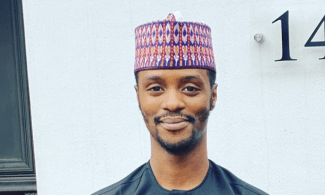Bashir El-Rufai, son of former Kaduna State Governor and ex-Minister of the Federal Capital Territory, Nasir El-Rufai, has publicly apologized for his remarks about Southern Kaduna residents and Fulani herdsmen. Known for his blunt political statements, Bashir took to his X (formerly Twitter) handle to express regret over his choice of words, admitting that his post was “poorly written” and made “in the heat of the moment.”
For years, tensions between farmers and herdsmen have fueled violent conflicts in various parts of Nigeria. Farmers have accused herdsmen of encroaching on farmlands and destroying crops, leading to retaliatory attacks. Recently, the Supreme Court upheld a death sentence for a Taraba State farmer who killed a Fulani herdsman in self-defense after allegedly being attacked. This ruling has sparked international debate, highlighting the volatile nature of the crisis.
In his apology, Bashir stated: “My tweet about Southern Kaduna residents and persecuted Fulani herdsmen was in bad taste. I apologize to those who know me and understand that I do not harbor such sentiments.”
Read also: Backlash trails Bashir Ahmad’s calls for Nnamdi Kanu’s perpetual detention
Despite his apology, many Nigerians believe his retraction is politically motivated. Critics speculate that Bashir is attempting to protect his future political ambitions, with one user posting: “Bashir quickly apologized to avoid backlash when he is nominated as a minister in Nigeria.” Another user remarked: “Your tweet is now part of global archives and will resurface when you seek public office.”
Further scrutiny of Bashir’s online engagements reveals his mocking responses to critics. When confronted by a user who accused him of talking too much, he defiantly replied: “I will keep talking.” His use of emojis in response to serious criticism has also fueled skepticism about the sincerity of his apology.
As reactions continue to pour in, political analysts believe this controversy could have lasting implications for Bashir El-Rufai’s public image and political trajectory in Nigeria.






